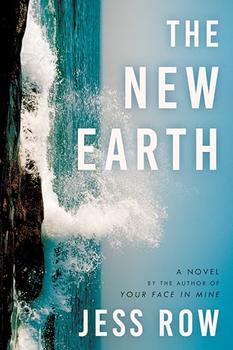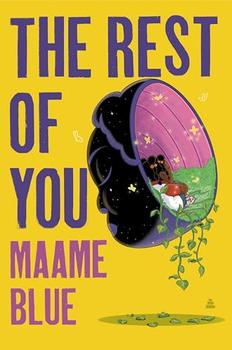Summary | Excerpt | Reviews | Beyond the Book | Readalikes | Genres & Themes | Author Bio

A Novel
by Jess Row
Ruth Liebler. Second viola, Met Opera Orchestra. Stan Liebler's widow. Stan was a graduate of some Ithaca commune who'd returned to the family fold and become a costume jeweler specializing in low-end silver, the kind you find at head shops and Renaissance fairs—pentagram rings, spiky skulls, Celtic crosses, Iron Crosses, Om Mani Padme Hum bracelets. He was party to a patent-infringement suit that went on for nearly a decade, and a major fixture at Fein Lewin in the old days. Many lunches billed for no conceivable reason. Lewin was lead counsel, but he'd always get dragged in because Stan liked him. A fellow traveler. You should meet Ruth, Stan would say, my classier half, and here she is, in a long brown dress with a scarf cinched too tight around her wattling neck. She has the pinched look of the perennially aggrieved. Orchestras, as he understands it, are like colleges—they have tenure, they have committees, every tiny incremental shift arbitrated by amateurs full of sedimented rage. So Ruth was capo di tutti capi of the something something committee, had been for twenty years, and a group of younger players hatched a scheme, probably for reasonable reasons, and voted her out. Will Diamond, his best associate, already told her that you can't file for wrongful termination if you weren't actually getting paid. But she doesn't want to hear it. She wants to sue.
At this age you can't say a single thing without feeling the weight of worlds around it. He senses that. Why begin here, in this conversation, of all places? Because the novel holds us all in place. He, who is speaking; I, writing; you, reading. The novel does our thinking for us. At the beginning it holds us around the legs. Walk out into the waves and you can feel the tides move. The trillion trillion gallons.
"So let's go back a few. I grew up in Davenport, Iowa. How about you, Ruth?"
"Fall River," she says, "Fall River, Massachusetts."
"Two not-dissimilar towns. Same size. Working-class. The Mississippi, the Atlantic. The working river, the working ocean. Barges, freighters. Coal and steel. Corn and wheat. Industries mostly gutted, now, of course. Outsourced. Trump Country. In our time, already teetering into decline. That sound about right? Not that we noticed. We had decent schools. Cyclone fences. Neat little gardens. Little tufty, scabby lawns. Stable families, tight neighborhoods. Big Fourth of July parades. Lots of Catholics. Lots of vets. Big union halls, American Legions. Kids started going to Vietnam early. Like '65, '66 early."
"And coming back in coffins early. My best girlfriend's older brother. Norman Feldkrantz. Killed in March of 1967."
"I mean, what is there to say anymore about the sixties? Turn on PBS these days and it's the deadly nostalgia channel. Peter, Paul and Mary, still in the same turtlenecks. Embalmed. But what are we supposed to do? It's us. It's the weight of something dreadful called, I don't know, experience."
"Except for Mary. She's actually dead now."
"I would never get into it, except for one thing: we can't avoid it. It's material evidence of who we are, our ridiculous expectations, our sensitivity about failure. Et cetera. I told myself to avoid it, for years. I felt like a survivor, which is ridiculous. Here I am, a white guy, and I never got drafted—too young, by a hair—never got gassed. Kent State happened while I was at Oberlin; we drove there that same night, stood outside holding candles. That's the closest I came to any physical danger. That and organizing out in Chico, in '76. Nearly run over by a pickup truck in a field of celery. But my point is—and I think you know what I'm talking about—1980."
"Don't even mention that cursed year."
"It was like a door closed, and I told myself I was living a new life, for better or worse. Morning in America. I had a job, all of a sudden. A real job. I had kids, soon enough. In my case, like in your case, we were a two-income family. Everything was sink or swim. Nobody was marching for anything. Lennon died, and the lights went out. Like the song said, remember? This is not my beautiful house! This is not my beautiful wife! More clichés, I know. I'm helpless with them."
Excerpted from The New Earth by Jess Row. Copyright © 2023 by Jess Row. Excerpted by permission of Ecco. All rights reserved. No part of this excerpt may be reproduced or reprinted without permission in writing from the publisher.




Most of us who turn to any subject we love remember some morning or evening hour when...
Click Here to find out who said this, as well as discovering other famous literary quotes!
Your guide toexceptional books
BookBrowse seeks out and recommends the best in contemporary fiction and nonfiction—books that not only engage and entertain but also deepen our understanding of ourselves and the world around us.